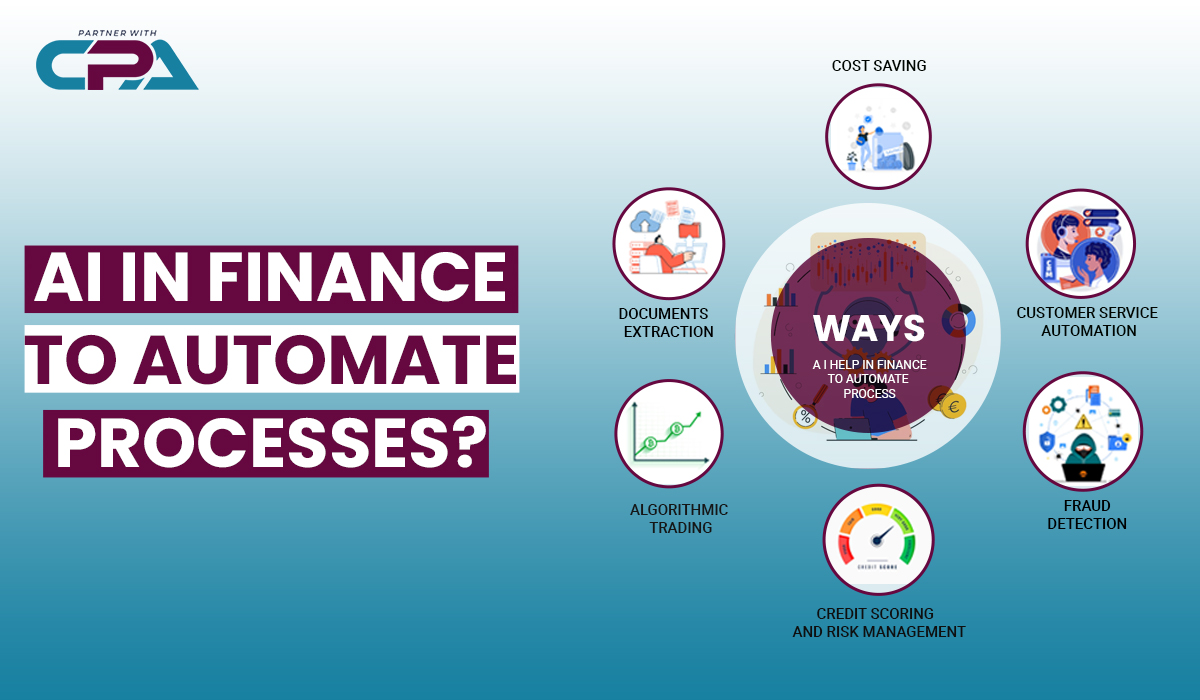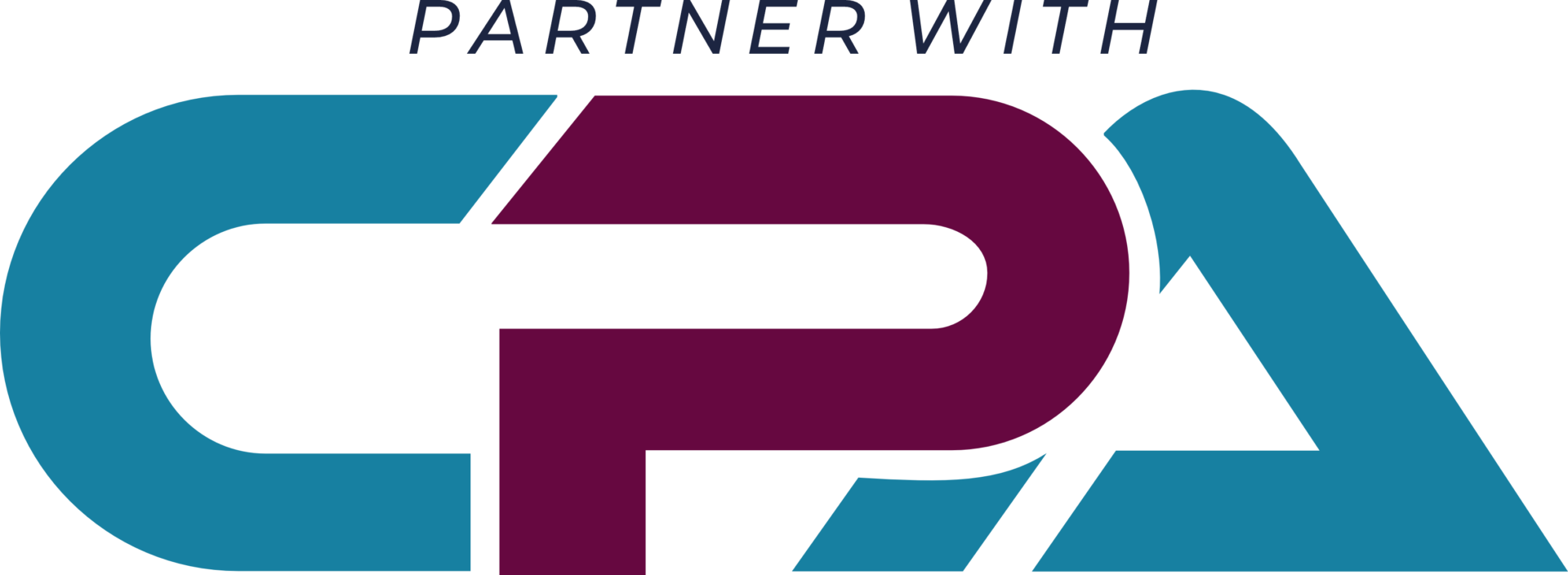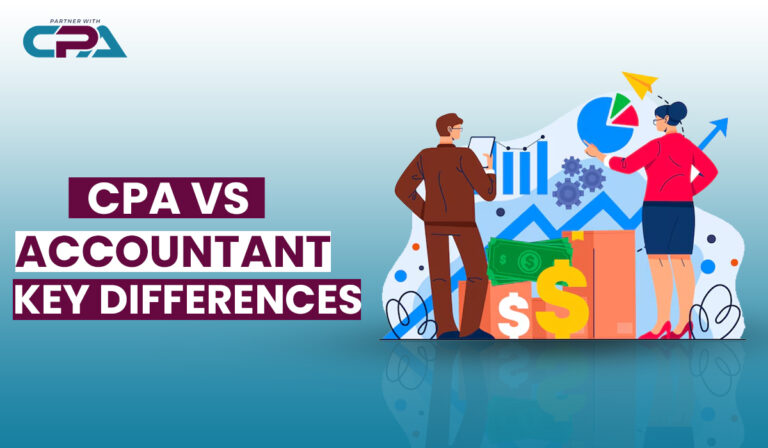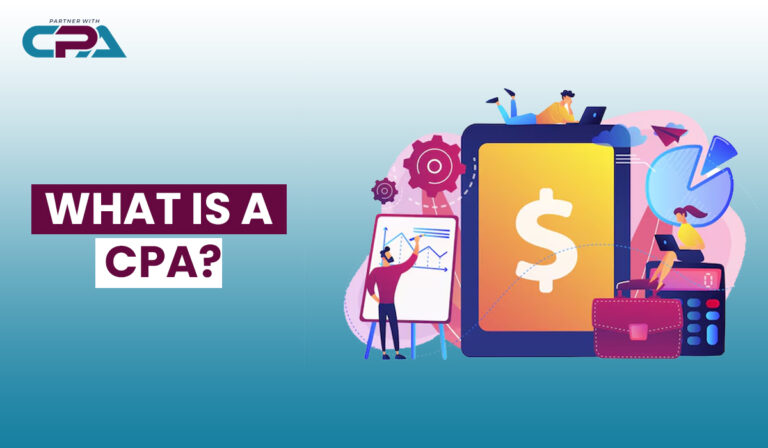How Can AI Help in Finance to Automate Processes?

Finance is rapidly evolving with the integration of artificial intelligence (AI) and the expertise of Certified Public Accountants (CPAs). How Can AI Help in Finance? AI is transforming financial operations by automating processes, improving security, and enhancing customer experiences. At the same time, CPAs remain indispensable in financial planning, auditing, and regulatory compliance. Together, AI and CPAs shape a more efficient and secure financial landscape.
The Impact of AI in Finance
Artificial intelligence is revolutionizing finance by streamlining processes, reducing human error, and providing data-driven insights. Here’s how AI is shaping the financial sector:
1. Automating Financial Processes
AI automates repetitive tasks such as data entry, transaction processing, and compliance checks. This not only increases efficiency but also minimizes operational costs for financial institutions and businesses.
2. Risk Management and Fraud Detection
AI-powered systems analyze vast amounts of transaction data in real time to detect fraudulent activities. Machine learning models identify unusual patterns, preventing financial fraud before it occurs. AI also enhances credit risk assessments by analyzing borrower profiles more accurately than traditional methods.
3. Customer Service Enhancement
AI chatbots and virtual assistants provide 24/7 customer support, helping users with account inquiries, transaction processing, and financial advice. These AI-driven tools improve customer experience by reducing response times and increasing accessibility.
4. Predictive Analytics for Investment and Trading
AI helps investors make informed decisions by analyzing historical and real-time market data. Hedge funds and trading firms use AI-driven algorithms for high-frequency trading, portfolio management, and risk assessment.
5. Personalized Financial Planning
Robo-advisors powered by AI offer individuals tailored financial advice based on their spending patterns, risk tolerance, and financial goals. These tools make financial planning more accessible to a broader audience.
6. Regulatory Compliance and Reporting
AI simplifies compliance by analyzing regulations and ensuring businesses adhere to legal financial requirements. Automated reporting tools generate accurate financial statements and audits, reducing human intervention and the risk of errors.
7. Cybersecurity and Data Protection
AI enhances financial cybersecurity by detecting suspicious activities and responding to potential breaches in real time. AI-driven encryption and authentication measures safeguard financial data against cyber threats.
8. Cost Reduction and Operational Efficiency
AI streamlines operations and decision-making, helping businesses reduce costs and increase profitability. Automated workflows allow companies to focus on strategic financial planning rather than manual processing.
The Role of CPAs in Modern Finance
While AI optimizes financial processes, CPAs provide the expertise required for in-depth financial planning, compliance, and consulting. Becoming a CPA requires meeting specific educational, examination, and experience criteria, ensuring they are highly skilled professionals.
1. CPA Requirements and Certification
To become a CPA, candidates must:
- Complete a bachelor’s degree in accounting or a related field.
- Fulfill 150 semester hours of coursework (which may require a master’s degree).
- Pass the Uniform CPA Examination, covering:
- Auditing and Attestation (AUD)
- Business Environment and Concepts (BEC)
- Financial Accounting and Reporting (FAR)
- Regulation (REG)
- Gain 1-2 years of supervised experience in public accounting, corporate finance, or government.
- Meet state-specific ethics exam and licensing requirements.
2. Key Responsibilities of a CPA
a. Financial Auditing and Assurance
CPAs conduct audits to ensure financial statements are accurate and comply with accounting standards. Their audits provide credibility and reliability to businesses and investors.
b. Tax Planning and Preparation
CPAs assist individuals and businesses in filing taxes, minimizing liabilities, and ensuring compliance with tax laws. They help develop strategic plans to optimize tax benefits.
c. Business Consulting
Companies rely on CPAs for financial guidance, risk management, budgeting, and forecasting. Their expertise supports strategic decision-making for businesses aiming for long-term growth.
d. Forensic Accounting and Fraud Detection
CPAs specializing in forensic accounting investigate financial fraud, embezzlement, and discrepancies in financial reports. They provide expert testimony in legal cases and help prevent financial crimes.
e. Compliance and Regulatory Reporting
CPAs ensure businesses comply with government regulations, preparing accurate reports and handling audits to avoid penalties and legal issues.
3. Finding a CPA Firm Near You
For businesses and individuals looking for professional accounting services, choosing the right CPA firm is essential. Read the following details to find the best one:
- Check credentials: Look for firms accredited by the American Institute of Certified Public Accountants (AICPA) and state Boards of Accountancy.
- Consider specialization: Choose a firm that has expertise in your industry (e.g., healthcare, real estate, technology).
- Evaluate communication and responsiveness: Ensure the firm offers proactive financial guidance and regular updates.
- Compare pricing and services: CPA firms may charge hourly rates or fixed fees—compare pricing structures to align with your budget.
- Seek client reviews: Look for online testimonials and referrals to assess a firm’s reputation and reliability.
The Future of Finance: AI and CPAs Working Together
The integration of AI and CPA expertise is shaping the future of finance. While AI enhances efficiency, security, and predictive insights, CPAs provide the professional judgment and strategic planning necessary for complex financial decisions. Together, they create a well-rounded financial ecosystem that balances automation with human expertise.
Final Thoughts
AI is transforming the finance industry by improving automation, fraud detection, predictive analytics, and customer service. Meanwhile, CPAs remain indispensable in areas requiring human judgment, regulatory compliance, and strategic financial planning. Businesses and individuals that leverage both AI-driven tools and CPA expertise will be best positioned for financial success in the modern economy.

I’m Qaisar Umar, a Digital Marketing Expert, Web Designer, and Growth Strategist with experience ranking 90+ brands and working with 200+ international clients. I’m SEMrush certified and trained by iSkills, specializing in SEO, web design, and growth strategies to help businesses scale online.
Passionate about technology and ranking tactics, I stay ahead of trends to drive real results. Whether it’s boosting visibility, improving engagement, or growing a brand, I focus on strategies that work.


